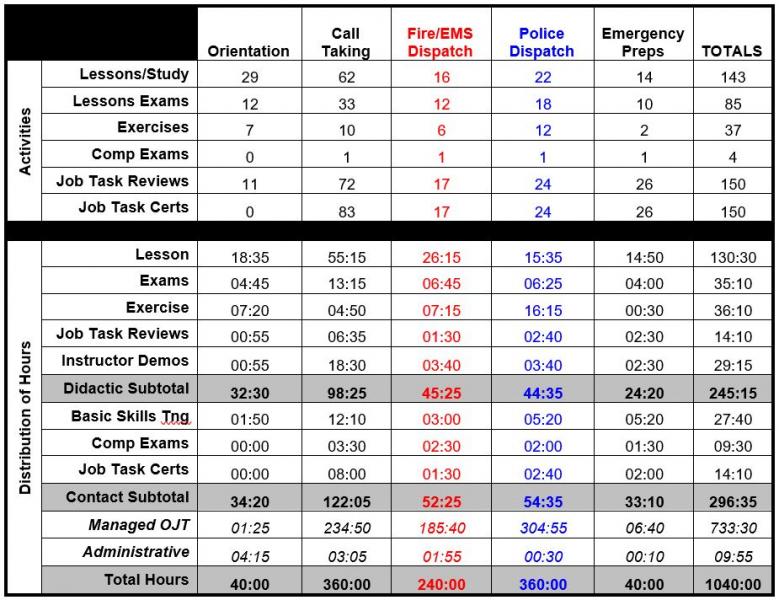Entry-level Training for NPD PSTs
The State of Florida enacted legislation in 2009 to provide statewide standards for the initial training and certification of new PSTs, and continuing training and recertification for incumbent PSTs. Governor Charlie Christ signed the act into law in July 2010, compelling public safety agencies to ensure compliance with the standards mandated by state law through an internally developed or externally provided formal course.
In response to the legislation, the Florida Department of Education developed the Public Safety Telecommunicator program, establishing formal student performance standards for new PSTs and requiring public safety agencies that conduct their own entry-level PST training to submit their programs for state review and approval. To comply with the full standards of the state mandate, the NPD Communications Division submitted its Program of Instruction for Entry-level Training (ELT) and received state certification in March 2011.
The PST ELT Program of Instruction prescribes focused indoctrination, knowledge, and skills that enable a new NPD PST to perform all corresponding job tasks to their proper standards and with the highest degree of professionalism. A PST undergoes training with the goal of completing all requirements by the end of the initial 6-month probationary period. If training progression or operational requirements dictate otherwise, the Communications Manager may extend training beyond the new employee’s initial probationary period with approval of the Chief of Police Department.
There are five phases to the course, each of which involves an array of orientations, lessons, exercises, examinations and certifications presented via various media.
- Phase I, Orientation includes meeting key personnel; briefings on other department functions; touring facilities; issuing uniforms and equipment; overview of division operations, policies and procedures; and familiarization with communications equipment.
- Phases II through IV comprise the core of ELT. Each phase focuses on one of the three functional positions—call taking, fire/EMS dispatch, and police dispatch—and involves initial basic skills training (IBST), managed on-the-job training (MOJT), tests, and task certifications. During ELT, a Telecommunicator Instructor (TI) serves as the PST’s primary trainer and mentor.
- Phase V, Emergency Preparedness focuses on departmental contingency plans and actions. The highlight is the PST’s completion of several Emergency Management Institute online courses.
The curriculum is distributed across the five phases as indicated below.

